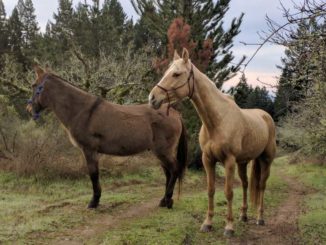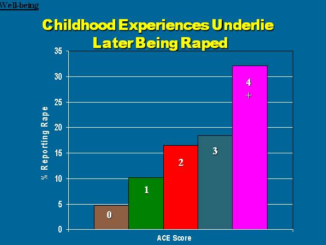Podcast: Play in new window | Download
Subscribe: RSS
Welcome to Off Topic Thursday. I was interviewed by Rich Decker of the Hero’s Journey Podcast and I wanted to give you a sneak preview of the session before he releases it. In the Hero’s Journey Podcast, Rich asks people about their life’s path challenges and victories and airs these interviews on his website: http://www.mindfulaccord.com/the-heros-journey-podcast/. If you are looking for inspiration for your own journey, this is the place to go.
For the interview he sent me questions to preview. I like to draft answers and I have them posted next. However, you’ll have to listen to get the real story. As expected the conversation touched on other topics and skipped some of the ones below.
The book I mention regarding changing negative self-talk is called Peaceful Living by Mary Mackenzie.
- Tell us about your childhood, where did you grow up? What principles did you parents pass along to you for better or worse?
I was born in Detroit and lived in the suburbs. I have two versions of my childhood. For the first 45 years of my life I believed that my childhood was characterized by benign neglect. Both my parents where emotionally absent although I was well cared for physically. My mantra was, “I’m bored, I’m bored.”
In college, when I studied early childhood education, I learned the signs of childhood sexual abuse – which are sexualized play with dolls, excessive masturbation, initiating sexual activity with other children, urinary tract infections. I realized I exhibited all the signs of sexual abuse as a child, however, it wasn’t until my late 40’s that I began recovering memories of an alternative view of my childhood. As it turned out I was born in to a ritual abuse family and was emotionally, physically and sexually abused for over a decade. My parents divorced when I was 12 and I think that ended the abuse. I ran away from home when I was 15 and began living in California.
My immediate response to the question about principles is none. I consider my father to be about two years old emotionally. He was also severely abused as a child and does not remember it. My mother made it to about eight years old. She is insecure and unsure of herself. They both have genius IQ’s but are stunted. Because my mother was so insecure, she wanted to give us kids something different. She read a book one day about how to instill self-confidence in children and she applied it. Because of that I have this ingrained feeling of being the best and of being able to do anything. I still have my insecurities, but unlike people that were put down by parents, I don’t have a very strong self-hatred voice.
My parents also modelled poverty mentality, which I picked up and started to challenge when I was in my early 30’s. My mother also modelled generosity, self-sacrifice, and always giving people the benefit of the doubt. She is a bit of a martyr. On the other hand, my father is a bigot, but for some reason I didn’t get that until recently. I don’t think our parents necessarily “pass on principles”. I think we come in with certain tendencies and then we find people that can reinforce them. I was already generous, so I resonated with my mother’s generosity. I was already tolerant, so I didn’t get my fathers bigotry and prejudice.
- As I understand it, you were a child of abuse. What kind of abuse did you suffer and how did you deal with it then. What was your defense mechanism?
Yes, I was severely abused as a child. My paternal grandparents where into ritual abuse. That means groups of people would get together and emotionally, physically and sexually abuse me and my brothers. They had done it to my father as a child as well. That is why he is stuck at 2 years old. Many people that undergo this type of abuse develop alternate personalities. For some reason, I didn’t. Or at least people that have evaluated me say I didn’t. I protected myself by forgetting the events. I did the things that children do to process abuse. I did “play therapy” with my dolls. Groups of Barbies would gang up on the couple “good dolls”. I would also torture my larger dolls. I spent a lot of time alone “bored” but it was probably just depression. I stuffed the memories deep into my subconscious along with most of my being. I focused on achieving academically. I moved into adulthood depressed and anxious and dissociated.
- When you were a teenager what did you envision for yourself?
As an early teen I figured I become a doctor. I wanted to be some sort of brain surgeon, so I wouldn’t have to really deal with patients. Then at 14 I became a waitress and loved it. I just wanted to work and have my own place. But you can’t do that at 14. Then I found out about the GED and wondered why I was in high school when you can take a test and “graduate”. At that point I planned to run away because it was the only way to be independent at my age. My best friend had an older brother that lived in California. He came to visit, we fell in love and within months I was in California.
- When did things begin to be unmanageable? What was the point that you reached that you knew how you were living wasn’t working? Explain what your life was like at the darkest times.
Things were always a bit unmanageable. Once I ran away, I fell into a deep depression for a couple of years. I didn’t know I was depressed at the time. I didn’t really have a part of my mind that was looking at my life and questioning things. I was on auto pilot. I started going to college, I didn’t really like it, longed for something more, but each semester I would sign up again. I drank pretty heavy. At one point my partner called me an alcoholic and I stopped drinking for a couple years. That relationship ended and then I got into a relationship that changed my life. I became deeply attached to a man that was abusive. Despite being aware that it was crazy to stay with him, I couldn’t break free and this prompted me to seek help. I ended up in a twelve-step program and began to work the steps.
- Who was your mentor or mentors through this process? Who is your mentor today?
At my first 12-step meeting I was struck by one woman. She seemed to talk about things in a really simple way. I remember looking around the room and wondering if people liked her or thought she was stupid. Early in my recovery, when I was in crises, my partner and I had a fight while out on the town with all the drama I did back then. I called her. She walked me through the steps right then on the phone. She taught me how to focus on myself. Despite all the shit he had done, we found the things I had done wrong and that is where I got to work. Many people in recovery don’t know how to use the steps in a crisis. They really are a roadmap back to self and sanity. I was blessed by her help. The years went by and I got divorced. I thought I would be happy once I was free, but instead I fell into a horrible depression. I remember my sternum would crack when I straightened up since I was so used to being slouched over in depression. I got sick and tired of being sick and tired. I started calling this woman every day. I didn’t even know what to ask for. Luckily, she was a talker, she talked about herself and I listened.
I call her my spiritual mentor. She taught me that self-love was the fast track to recovery. She taught me not to struggle with what is. She taught me what questions to ask. Like: Do I need to have an answer to this today? Do I have to do this today? What is the kindest thing I can do for myself today? And she taught me how to apply the steps to any issue or problem.
On day, we were on the phone and she said, “I’ve taught you all I know”. And I answered, “yes, I know”. I had a solid foundation then. I knew how to deal with life.
- I am curious about how those on their hero’s journey and how they handle temptations. How did you handle yours?
We didn’t get to this, so it will be a topic of a future podcast. Very interesting question.
- I know you have had a difficult relationship with your mother. Have you made atonement with her? Have you made attonments with Dorena?
My mother was the one that witnessed the abuse but didn’t rescue me. Even though I didn’t know I had been abused, I entered my teen years angry at her and stopped talking to her. I wasn’t even sure why. My three decades of dealing with my anger at her is the subject of one of the stories in my book Deconditioning Ground (which is volume 2 in the Answers are Within Series). It is a little too much to go into here. But if someone is interested in clearing a bad relationship with a parent, it is a good read. It will give you the flavor of what is possible.
Atonement is another interesting word I would never use. It infers that you are making up for a wrong or injury. I get all baffled when trying to judge things as right or wrong. I focus on improving things. I ask what can I do to make this better? So, in my forties, before I remembered my childhood, I did what is called a living amends. Every weekend I would call my parents and talk with them. It was my way of allowing for a better relationship.
When I was in the middle of recovering my childhood memories I lived with my mom. I was good for awhile and then she just started making me angry. I was able to get to the root of my issue and clear it. She just came two weeks ago and stayed for a week. No anger from me. She just doesn’t trigger me. I have a peaceful sense of detachment. Although, I am working on letting her lie about her choices and life. I want her to just admit she is choosing to be unhealthy instead of the aging lie she tells herself. So, I still have some agenda for her. But awareness
- If you could talk to the old Dorena before her journey begins what would you say to her?
This is an interesting question. In the middle of my recovering my repressed memory I read a psychological text on trauma and dissociation. I learned that as a child the “real” Dorena was left behind and a part of me that is called the “apparently normal part” moved forward. This resonated with me. The apparently normal part was just a fragment of who I am. It was the self that could function in this world. In the process of my recovery, I reclaimed parts of myself. I used to hate the part of my that was stuck in the past of abuse. Then I realized that was me and some shell of me had moved forward. All of this is somewhat abstract. My answer is that the old Dorena is the one that is all wise, so I have nothing to say to her. The old Dorena, was hid away to protect her from the abuse. Today maybe I would say: “Welcome back into the driver’s seat”.
- Can you explain the “The Change Anything Now Program?” and your podcast “Positive Change With Dorena.” Perhaps give us a quick example of how we can change our unconscious thoughts?
The Change Anything Now Process – and we can just call it the CAN process – was developed and refined during my process of uncovering my childhood memories and resolving them. It combines things I learned from various practitioners, including my study of Chi Gung, Meditation, Yoga, and ThetaHealing. It is difficult to explain the process that is why I developed the Positive Change with Dorena Podcast and started airing actual sessions I do with other people. I also have a YouTube video of a session and I plan on putting up a new video soon of a group facilitation I did last year.
The core part of the CAN process is accessing the 90% of the subconscious that is usually hidden from us all and once we have access we can change what we find instantly using intention. The process is simple, I teach it in a weekend workshop. The art is in finding the parts of our subconscious that are blocked. This requires a skilled practitioner or you need to develop your awareness and capacity for change. To jump start your natural ability I recommend my first book – developing awareness and my podcast. The first episode talks about the 7 characteristics to create easy change and episode 19 goes into one of them in greater detail.
If you have enjoyed this podcast take a moment to give it a five star review in iTunes. If you are feeling stuck and would like to have a session with me visit my website at changeanythingnow.com to find out more. Sessions for this podcast I do for free. How does it get better than that?
CREDITS:
Music
Cheery Monday by Kevin MacLeod (incompetech.com)
Licensed under Creative Commons: By Attribution 3.0 License
http://creativecommons.org/licenses/by/3.0/
Voice Intro:
Dylan McClosky
https://www.fiverr.com/dylanmcclosky
Podcast: Copyright 2018 Dorena Rode – All Rights Reserved



Leave a Reply